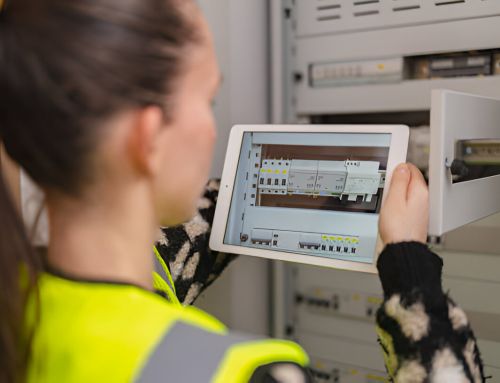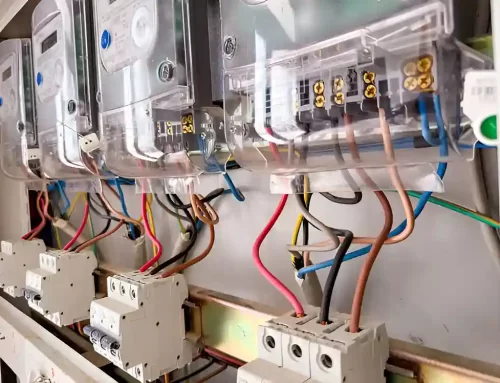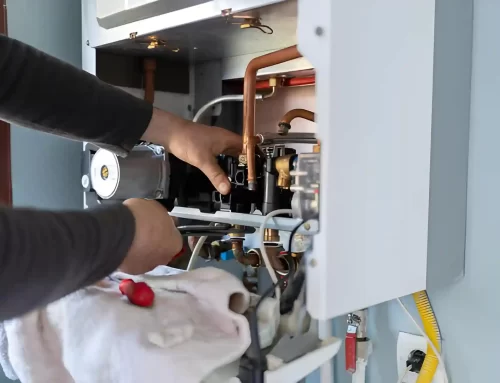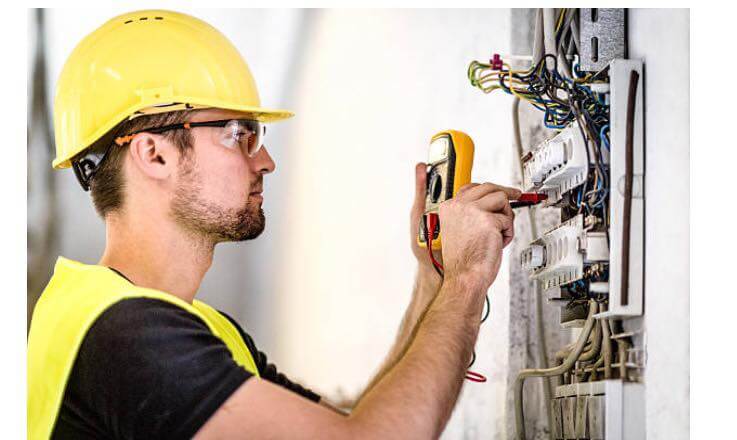
Exploring the purpose of an Electrical Installation Condition Report (EICR) reveals a fundamental mission that goes beyond mere compliance.
But what is the ultimate objective behind this critical assessment?

Let’s unravel the layers of significance and delve into why EICRs are not just a routine check but a vital component in ensuring electrical safety and peace of mind for property owners.
Understanding EICR’s Purpose
Understanding the purpose of an Electrical Installation Condition Report (EICR) is essential for ensuring the safety and compliance of property electrics with BS7671. The primary goal of an EICR is to conduct a thorough safety assessment and property evaluation of the electrical installations.
This involves a detailed inspection process where qualified electricians identify and assess any hazards present in the electrical system. Hazard identification is crucial to pinpoint potential risks that could compromise the safety of the property and its occupants.
Based on the findings, remedial recommendations are provided to address any defects or issues discovered during the inspection. These recommendations serve to improve the overall safety and functionality of the electrical installations.
The EICR process is meticulous, involving visual assessments and tests to ensure a comprehensive evaluation of the property’s electrical system. Ultimately, the objective is to certify that the property’s electrics meet the necessary safety standards outlined in BS7671, providing property owners with a formal report detailing any necessary remedial actions.
Benefits of EICR Certification
To fully grasp the significance of EICR certification, one must recognize the pivotal role it plays in ensuring the safety and compliance of property electrics with BS7671 standards. EICRs provide safety assurance by detecting potential electrical hazards, thus preventing risks to individuals and properties.
Moreover, possessing an EICR certificate can contribute to maintaining or increasing property value by demonstrating that the electrical installations meet safety standards and are well-maintained. This certification also aids in risk prevention by identifying and addressing issues early on, potentially saving property owners from costly repairs or damages.
Additionally, some insurance companies offer discounts to properties with valid EICR certificates, incentivizing compliance and enhancing cost-effectiveness. Furthermore, EICR certification ensures tenant protection by verifying that the electrical systems in rented accommodations are safe, promoting a secure living environment.
Additional Advantages of EICR
Regularly scheduled EICRs provide ongoing assurance of electrical safety and maintenance, ensuring continued property integrity and risk mitigation. Enhanced safety is a key advantage of EICRs, as these assessments help identify potential electrical hazards before they escalate, promoting a secure environment for occupants.
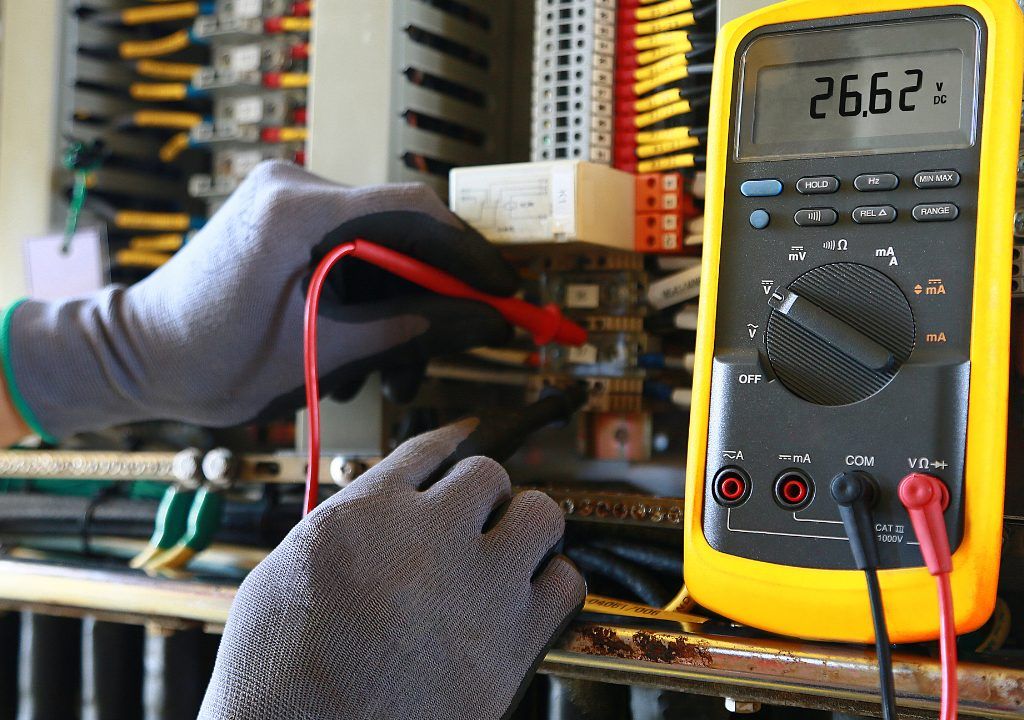
Additionally, conducting EICRs can lead to significant cost savings by detecting issues early, preventing costly repairs, or even avoiding dangerous electrical incidents. Moreover, having a professional assessment through an EICR not only enhances safety but also adds value to the property. Knowing that a qualified electrician has thoroughly inspected the electrical installations provides peace of mind to homeowners and potential buyers alike.
EICR Conducting Process
Conducting an Electrical Installation Condition Report (EICR) involves a thorough inspection by a qualified electrician, encompassing visual assessments, tests for identifying hazardous defects, recommendations for remedial work, and specifying the date for the next inspection.
The safety assessment is a critical aspect of the inspection process, ensuring that electrical installations comply with safety standards. The detailed electrical inspection includes examining the fuse box, wiring, plugs, sockets, and light fittings to detect any potential hazards.
Hazard detection is a key focus during the inspection, aiming to identify any defects or issues that could pose risks to the property or its occupants. Remedial recommendations are provided based on the findings, outlining the necessary actions to address any identified hazards.
The inspection process follows a structured approach to systematically evaluate the condition of the electrical installations, aiming to maintain a safe environment for the property and its inhabitants.
Compliance Requirements for EICRs
Compliance requirements for Electrical Installation Condition Reports (EICRs) outline the essential standards and obligations that property owners must adhere to ensure the safety and integrity of their electrical installations. EICR compliance ensures that safety standards are met through thorough electrical inspections, which are crucial for property maintenance. These inspections involve rigorous risk assessments to identify any potential hazards, defects, or non-compliance with regulations. Property owners must conduct EICRs at recommended intervals to uphold safety standards and prevent electrical risks.
Regular EICRs are fundamental for property safety and maintenance, providing a detailed assessment of the electrics’ condition. While there’s no legal obligation for homeowners to conduct EICRs, it’s highly recommended every ten years to ensure the ongoing safety of the property. Factors such as property age, type, severe weather conditions, or changes in property usage can influence the frequency of these inspections. By following EICR compliance requirements, property owners can proactively address safety concerns and maintain the integrity of their electrical installations.
Choosing a Reliable EICR Service
To ensure the safety and integrity of your property’s electrical installations, selecting a dependable EICR service provider is crucial. When choosing an EICR service, prioritize service reliability to guarantee thorough assessments in line with safety standards.
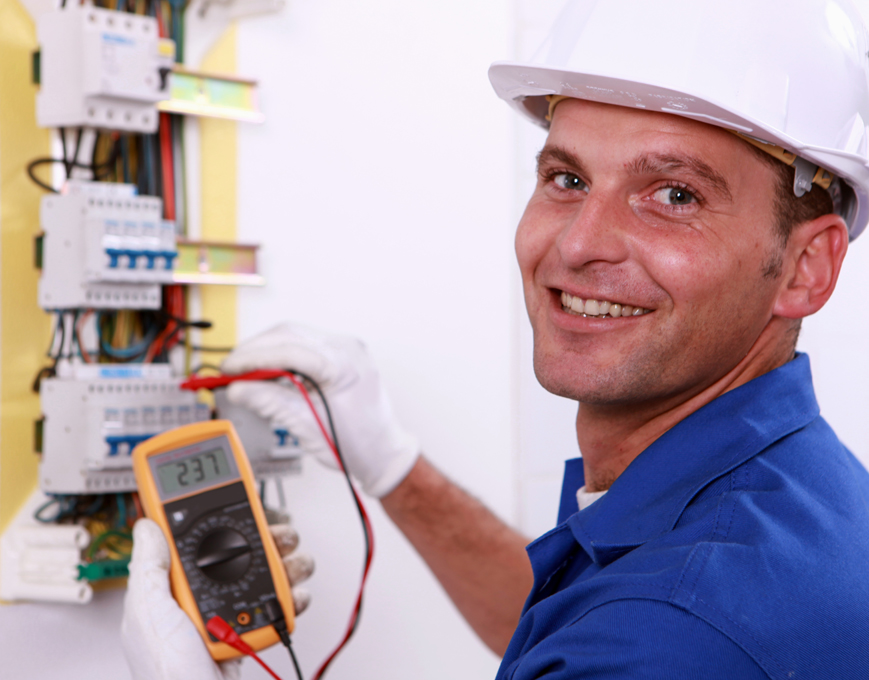
Opt for providers who offer professional inspections conducted by qualified electricians to ensure accurate property assessments. A reliable service ensures that the certification benefits are fully realized, providing you with a formal report certifying your property’s compliance with electrical regulations.
Frequently Asked Questions
Are There Any Specific Regulations or Standards That Govern the Process of Conducting an Eicr?
Regulatory requirements for EICRs mandate inspections by qualified professionals. Certification standards like BS7671 guide the process. The inspection procedure involves assessing fuse boxes, wiring, plugs, and sockets. Compliance guidelines dictate the frequency and necessity of the checks.
How Long Does an EICR Inspection Typically Take to Complete for a Residential Property?
Typically, an EICR inspection for a residential property takes around 2-4 hours to complete. The process involves a thorough examination of electrical installations including fuse box, wiring, plugs, sockets, and light fittings for safety compliance.
Can an EICR Report Be Used as Evidence in Legal Disputes Related to Electrical Safety?
An EICR report can be utilized as crucial evidence in legal disputes concerning electrical safety. The report’s findings, compliance with safety standards, and expert validation can contribute to risk mitigation and serve as a basis for court decisions.
Are There Any Common Misconceptions About the Importance or Necessity of Getting an EICR Done?
Misconceptions debunked: EICRs are vital for safety, not just a formality. Importance clarified: Identifies hazards early, preventing accidents. Necessity explained: Required for landlords, enhances property value. Benefits highlighted: Ensures safety, lowers insurance costs. Common myths addressed: Not just for old properties.
How Can Property Owners Proactively Maintain Their Electrical Installations Between EICR Inspections?
To proactively maintain electrical installations between EICR inspections, property owners should conduct regular safety checks, schedule preventive maintenance, consider electrical upgrades, assess risks with safety precautions, and seek professional guidance for DIY maintenance.
Our Pricing
| Our Electrical Safety Certificate Prices |
|---|
| Studio Apartment £67.99 |
| 1 – 3 Bedroom £94.99 |
| 4 Bedroom £104.99 |
| 5 Bedroom £139.99 |
Check Out Our Other Services
| EICR | Commercial EICR | Emergency Light Certificate |
|---|---|---|
| Electrical Diagnostic | PAT Testing | Fuse Box Installation |
About the Author: LandlordCertificate
Related Posts
Get Social
Recent Posts
- Choosing the Right Consumer Unit for Fuse Box Installation London in Properties
- Electrical Diagnostic London: How Professional Testing Keeps Your Property Safe and Compliant
- Asbestos Management Survey London: Update Your Property Records
- Gas Safety Certificate London: Why Regular Checks Save Money Long-Term
- FRA London Explained: How a Professional Fire Risk Assessment Keeps You Compliant and Safe


